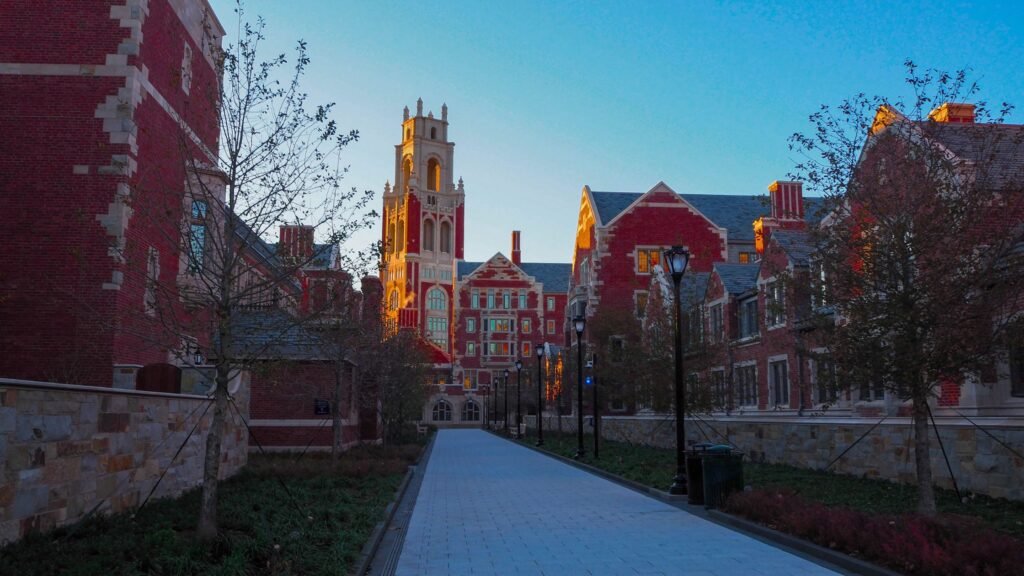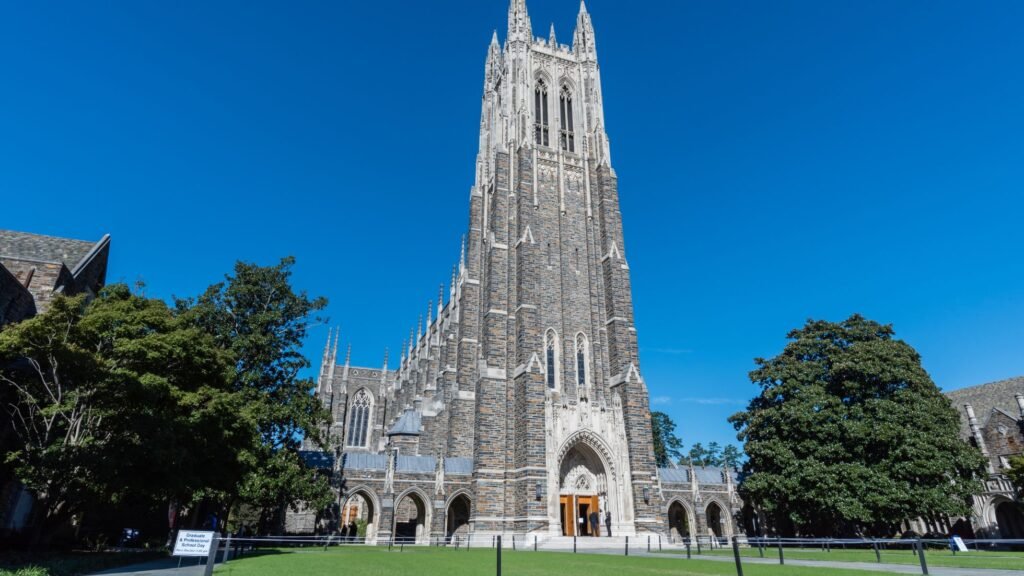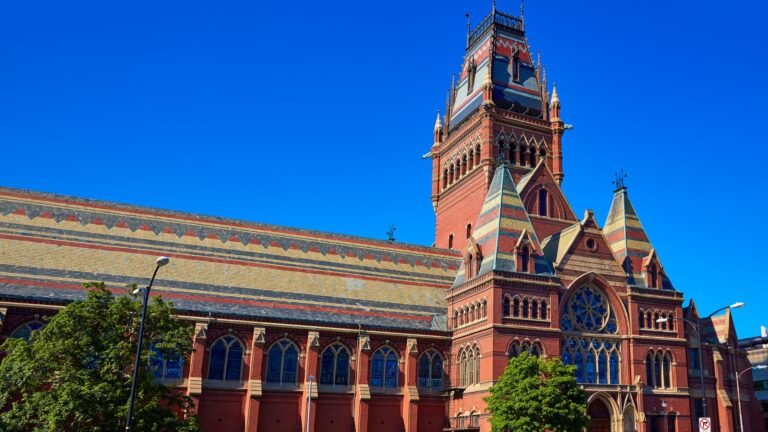The Ivy League application process in 2025 looks markedly different from the past few years.
Between the return of the SAT, changes in diversity policies, and rising political pressures, students now face a shifting landscape that demands strategy, clarity, and up-to-date information.
What was once a relatively predictable process has now evolved into a more dynamic, nuanced journey.
From the reintroduction of standardized testing to the dismantling of affirmative action policies and growing debates around legacy admissions, applicants must be more informed and intentional than ever.
The competition is fierce, but so is the opportunity for students who know how to adapt.
Whether you’re a high school junior planning your application or a parent supporting one, this guide explores the seven biggest changes you need to know, backed by real-time data, university announcements, and industry insights.
Use this as your roadmap to navigate the new Ivy League landscape with confidence and clarity.
1. The Return of Standardized Testing (SAT/ACT) Across Ivy League Schools

The COVID-19 pandemic prompted nearly all U.S. colleges to adopt test-optional policies from 2020 to 2024. But in 2025, the tides are turning again.
Which Ivy Leagues Are Reinstating Testing?
- Yale University has confirmed that standardized testing (SAT or ACT) will once again be required beginning with the 2025 admission cycle.
- Dartmouth College and Harvard University have also announced their return to test-required models.
According to Reuters, Yale’s administration cited “academic consistency” and “identification of underrepresented high performers” as key motivations.
Why the Change?
- Grade inflation has made GPA comparisons less reliable.
- Equity for low-income students: Ironically, testing helps some under-resourced students stand out when paired with strong scores and limited access to AP/IB programs.
- Holistic Review: Test scores are viewed as one component, not the defining one, in the decision-making process.
Alternative Accepted Scores Yale and others will consider:
- Advanced Placement (AP) exam scores
- International Baccalaureate (IB) scores
- SAT or ACT
This move highlights the significance of academic benchmarking across diverse educational systems.
Takeaway: Students should begin test preparation early and consider including AP/IB scores if they can enhance their profile.
2. Post-Affirmative Action Changes and Emphasis on Socioeconomic Diversity
In 2023, the U.S. Supreme Court struck down race-conscious admissions practices in the landmark decision against Harvard and the University of North Carolina.
This ruling effectively ended decades of affirmative action as it was previously practiced, sparking a ripple effect across elite universities, including all eight Ivy League schools.
How Are Ivy Leagues Responding?
Instead of focusing directly on race, institutions are shifting their diversity efforts toward socioeconomic and geographic indicators. In particular, they are:
- Prioritizing low-income and first-generation college applicants
- Focusing on geographic diversity, especially from rural areas and underserved states
- Proactively identifying high-achieving students from underfunded and under-resourced high schools
- Enhancing partnerships with community-based organizations that serve underrepresented populations
Forbes reports that Harvard has ramped up outreach to Pell Grant-eligible students and is investing heavily in need-blind admissions models for both domestic and international applicants.
This reflects a growing trend among Ivy League schools to use economic background as a proxy for ensuring a diverse class.
Impact on Essays
The Common App still allows students to write about personal identity, background, and formative experiences, giving applicants a vital opportunity to share their story.
Many Ivy League institutions now rely more heavily on these narratives to understand how a student’s environment, challenges, and contributions shape their potential.
Takeaway:
Applicants should go beyond academic metrics and highlight meaningful life experiences, resilience in the face of adversity, and community impact, especially if those experiences are shaped by socioeconomic barriers or limited access to resources. Authenticity and context are now more important than ever.
3. Reduction or Elimination of Legacy Admissions
Legacy admissions, long a point of controversy, are being reevaluated across the Ivy League system. This practice, which offers preferential treatment to applicants with family ties to alumni, is increasingly seen as outdated and inequitable.
The Pressure is On
Following the Supreme Court’s ruling on affirmative action, the spotlight has turned to legacy admissions as the next major obstacle to achieving fairness in college admissions.
Lawmakers, advocacy groups, and even some university faculty are publicly challenging the policy. Critics argue that giving a boost to children of alumni disproportionately benefits affluent, white applicants and perpetuates generational privilege.
Who’s Dropping Legacy Preferences?
- MIT has never practiced legacy admissions, upholding a merit-based standard.
- Wesleyan University formally ended the policy in 2023, citing fairness and access.
- Amherst College dropped it in 2021, becoming a model for equity-driven admissions reform.
While Ivy League schools like Harvard, Yale, and Princeton have not yet abolished legacy admissions, they are under mounting pressure to do so.
States like Colorado and Virginia have already banned the practice at public universities, establishing a legal precedent that could spread to other jurisdictions.
A Teen Vogue article highlighted the growing student-led movement against legacy policies, with petitions, protests, and calls for transparency gaining momentum across campuses.
Takeaway:
Applicants in 2025, especially those without family ties to elite schools, may benefit from a gradual shift toward a more merit-focused selection process.
This is particularly promising for first-generation college students, students of color, and applicants from non-traditional backgrounds who have historically been underrepresented in legacy-heavy admission cycles. The move signals a broader commitment to equal opportunity over inherited advantage.
4. New Supplement Essay Expectations & Portfolio Additions

With the removal of race-based admissions, essays now carry more weight than ever in the Ivy League evaluation process. Colleges are turning to personal narratives to gain deeper insight into an applicant’s character, values, and experiences that numbers alone can’t capture.
Emerging Trends in Prompts:
- Personal values and life lessons
- Resilience and growth from adversity
- Community engagement and cultural background
- Reflections on family history and upbringing
- Impactful moments that shaped identity and perspective
Students are expected to demonstrate intellectual curiosity, social awareness, and a sense of purpose through their writing. The quality of reflection and storytelling often becomes a differentiating factor, especially among academically similar candidates.
Creative Submissions Matter
Many Ivy League and top-tier schools now encourage or require creative components that go beyond the written application:
- Art portfolios (for visual or performing arts students)
- Writing samples (especially for humanities or journalism applicants)
- Research abstracts (for STEM-focused applicants)
- Video introductions or personal pitches
These materials help admissions committees assess creative thinking, originality, and genuine engagement in academic or extracurricular pursuits.
Common App Adjustments
While the core Common App prompts remain unchanged, many Ivy League schools are revising their supplemental questions to elicit deeper personal stories.
Some are even adding optional short essays that allow students to explain how their background, upbringing, or life challenges shaped their goals.
Takeaway:
Utilize every written and creative component of your application to convey your purpose, perspective, and personality.
Don’t just write what happened, explain why it shaped you, what you learned, and how it influences who you are becoming. This level of introspection and storytelling is what distinguishes Ivy League candidates.
5. Application Numbers and Selectivity Trends
The return of required testing is subtly, but significantly, changing application patterns at Ivy League schools. With SAT/ACT requirements reinstated, students are reevaluating whether to apply, resulting in significant shifts in volume and selectivity.
Decline in Total Applications
With additional barriers, including testing, longer essays, evolving diversity considerations, and shifting institutional expectations, casual or unprepared applicants are stepping back. This has led to a more self-selective applicant pool.
For example, Brown University reported a 14% decrease in early decision applications for the 2025 cycle, according to Essai.
This decline suggests that students are more carefully evaluating where to apply and submitting applications only to schools they feel confident about, based on both academic and extracurricular fit.
What Does This Mean?
- Acceptance rates are stabilizing or even increasing slightly for qualified candidates, particularly in the early rounds.
- The smaller, stronger applicant pool means admissions teams are reviewing applications from students who have thoroughly prepared, academically, emotionally, and strategically.
- Schools may find it easier to identify fit and potential without being flooded by a massive number of low-probability applicants.
Early Action vs. Regular Decision
The majority of Ivy League schools still accept a significant percentage of students through early decision or early action rounds.
These rounds demonstrate serious intent and allow colleges to shape their incoming class early. If your grades, test scores, and recommendations are ready, applying early can give you a meaningful advantage.
Takeaway:
Fewer total applications paired with a more competitive applicant base create better odds for highly prepared students.
Prioritize early application strategies if your academic data aligns with the school’s median range. This isn’t the year to submit a rushed application; precision and polish are now more critical than ever.
6. Political and Legal Pressures on Elite Institutions

Ivy League schools are under increasing scrutiny, not just from the Supreme Court but also from federal and state-level entities.
Case in Point: Harvard According to Business Insider, Harvard is facing a $2.2 billion federal funding freeze after resisting political demands related to diversity and anti-discrimination compliance.
The Impact?
- Reduced funding could impact financial aid, diversity, equity, and inclusion (DEI) offices, and student services.
- Political shifts may drive administrative changes and policy rewrites at elite schools.
What Should Students Do?
- Stay aware of institutional values and current events.
- Choose schools that align with your comfort level regarding campus culture and administrative transparency.
Takeaway: The Ivy League is not insulated from politics. Expect continued changes in diversity policy and public funding influences.
7. Rise of ‘New Ivies’ as Competitive Contenders

Not all students are sticking with the traditional Ivy League dream. Enter the “New Ivies”, non-Ivy schools offering Ivy-level academics.
Top Contenders Include:
These schools have seen:
- Surging applications
- High employment ROI
- National rankings that match or exceed some Ivies
As noted by the U.S. News National University Rankings, these schools have built elite reputations in STEM, economics, and public policy.
Why You Should Consider Them
- Similar academic rigor
- Often smaller class sizes
- Innovative research facilities
- Less saturated with political controversies
Takeaway: Don’t limit your options. The Ivy League isn’t the only gateway to elite education and long-term success.
Final Thoughts
As the Ivy League admissions process evolves, understanding the shifts in testing, diversity, and evaluation methods is essential for applicants.
Essai offers expert guidance, one-on-one mentorship, and the latest updates tailored for Ivy League hopefuls.
Start preparing today, visit Essai.in and make your dream school your reality.
FAQs
Q: What is the new SAT requirement for Ivy League schools in 2025?
A: Yale, Harvard, and Dartmouth now require SAT or ACT scores for 2025 applicants. Some allow AP/IB scores as alternatives.
Q: Are legacy admissions still allowed at Ivy League colleges?
A: As of 2025, most Ivy League schools still consider legacy status, but policy reviews and public pressure may change that soon.
Q: What replaced affirmative action in 2025?
A: Socioeconomic and geographic diversity are now the focus, with increased outreach to low-income and underrepresented communities.



